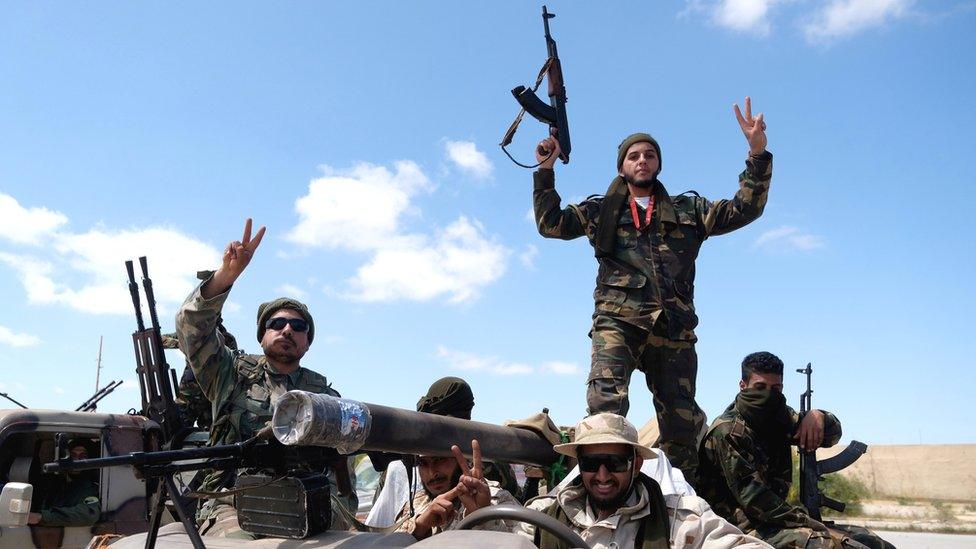Libya conflict: Haftar 'leaves' Moscow ceasefire talks without deal
- Published
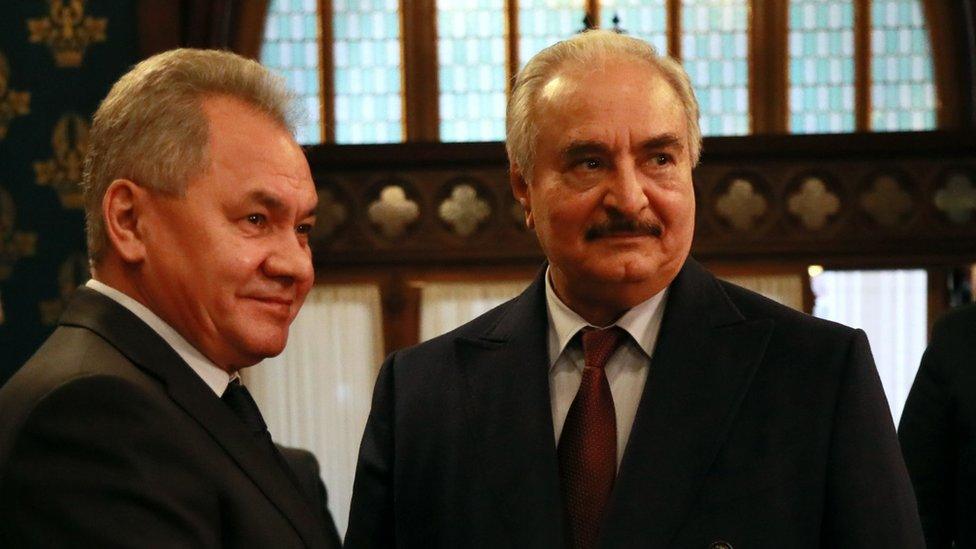
Khalifa Haftar (R) met Russia's defence minister earlier this month
Libya's Gen Khalifa Haftar, whose forces are fighting the UN-backed government in the capital Tripoli, has left talks in Moscow without signing a deal, according to media reports.
Meetings involving Gen Haftar and the Government of National Accord (GNA) began on Monday.
Both Russia, which backs Gen Haftar, and Turkey, which supports the GNA, were behind efforts to reach a truce.
The deal was aimed at ending nine months of fighting around the capital.
The violence began in April when Gen Haftar announced an offensive to seize the city from the UN-backed authorities.
Turkey's President Recep Tayyip Erdogan has warned his country would "teach a lesson" to Gen Khalifa Haftar if he resumed his attacks on GNA forces in Tripoli.
The role of international actors in the Libyan conflict has come into focus in recent months, with Turkey passing a controversial law to deploy troops to help GNA forces fighting in Tripoli.
Meanwhile, Gen Haftar is also backed by Egypt, Saudi Arabia, the United Arab Emirates (UAE), and Jordan, raising fears that oil-rich Libya could become the theatre of a regional conflict.
Over the weekend, German Chancellor Angela Merkel said that Berlin would to host another round of Libyan peace talks to build on the efforts by Turkey and Russia later in January.
What happened in Moscow?
A ceasefire between Gen Haftar's LNA and forces loyal to the UN-backed government in Tripoli was announced on Sunday, although they later traded blame over reported breaches.
Leaders from both sides then travelled to Moscow for talks with Russian and Turkish intermediaries on Monday, aimed at reaching a longer term agreement.
GNA head Fayez al-Sarraj signed the agreement on Monday, while Gen Haftar requested more time to review the deal.
He left Moscow without signing the deal, Russian news agency TASS quoted a Foreign Ministry statement as saying.
Turkish Foreign Minister Mevlut Cavusoglu responded by saying that Gen Haftar's actions showed "who wants war and who wants peace".
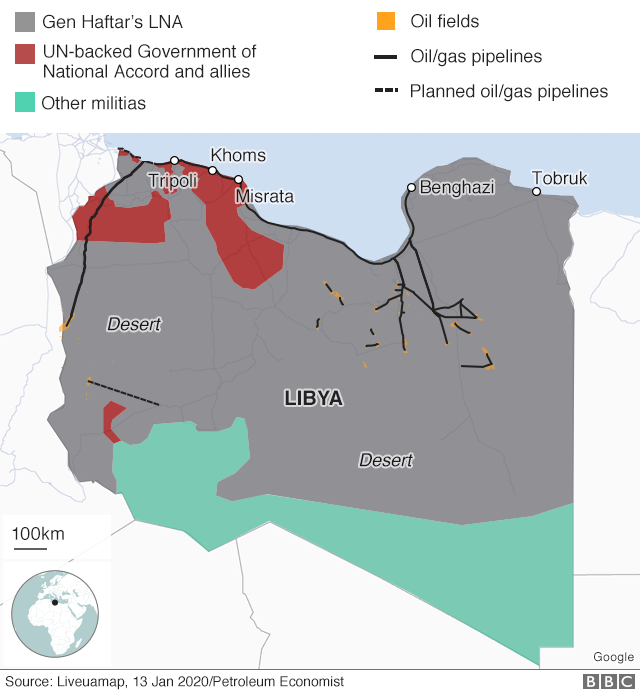

Analysis
By BBC North Africa correspondent Rana Jawad
To some, the speed of developments over the last few days for the prospect of an open-ended ceasefire between Libya's warring factions indicted that something was amiss in Moscow.
There were many questions after a fragile ceasefire came into force on Sunday: how would it translate into a longer-term one, what was it based on, and could Presidents Erdogan and Putin successfully pull off what Europe had arguably failed to do, as it idly stood by and floundered over the objectives of a long-delayed conference to be held in Berlin later this month?
In the end, Libya's eastern general, who is backed by Russia, walked away from the agreement. Time and again, with Libya's multiple "small wars" over the years, those leading its military and political conflicts have demonstrated that forced deals by regional proxies and the international community are either rarely agreed or adhered to.
The eastern general appears to be betting on his other allies in the region - but with an angry Putin left at the altar, one wonders if he has overplayed his hand.

What's the situation in Libya?
Libya has been wracked by conflict since the 2011 uprising which ousted long-time strongman Muammar Gaddafi.
The Libyan National Army (LNA), which is loyal to Gen Haftar, controls most of eastern Libya.
His forces launched an offensive against the capital in April 2019 but have been unable to take the city. Last week, however, they did take the country's third-biggest city, Sirte.
According to the UN, tens of thousands of people have been displaced by the fighting around Tripoli.
BBC Arabic found videos of bodies being desecrated by fighters loyal to strongman Khalifa Haftar
- Published12 January 2020
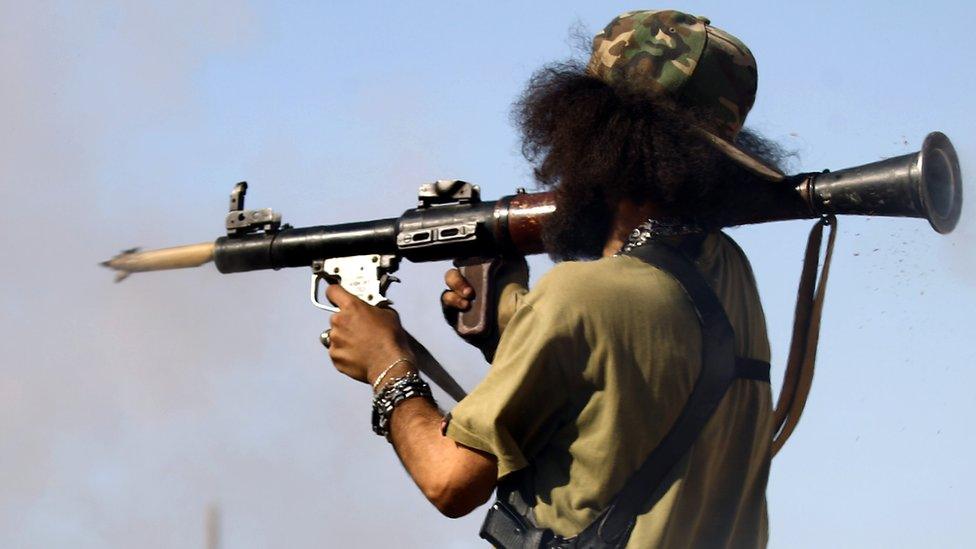
- Published30 December 2019
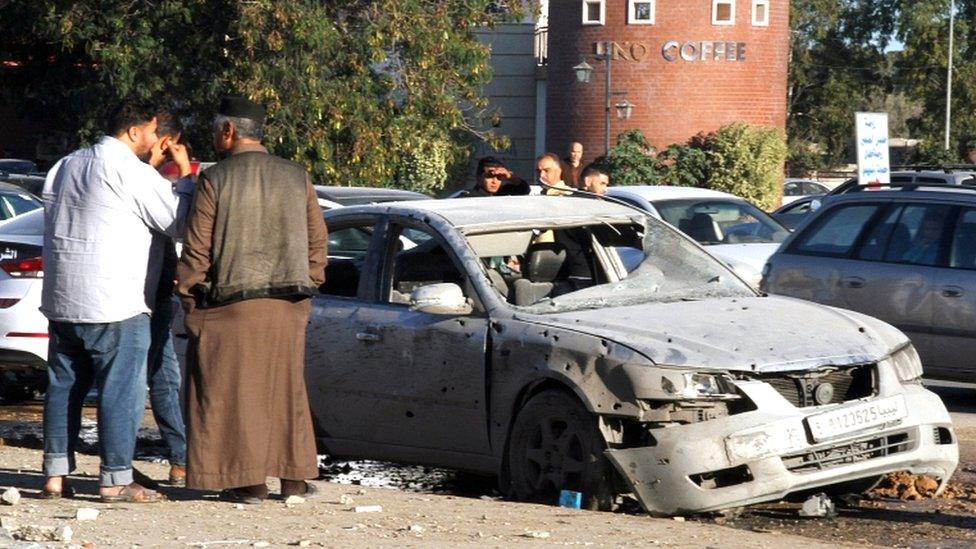
- Published8 April 2019
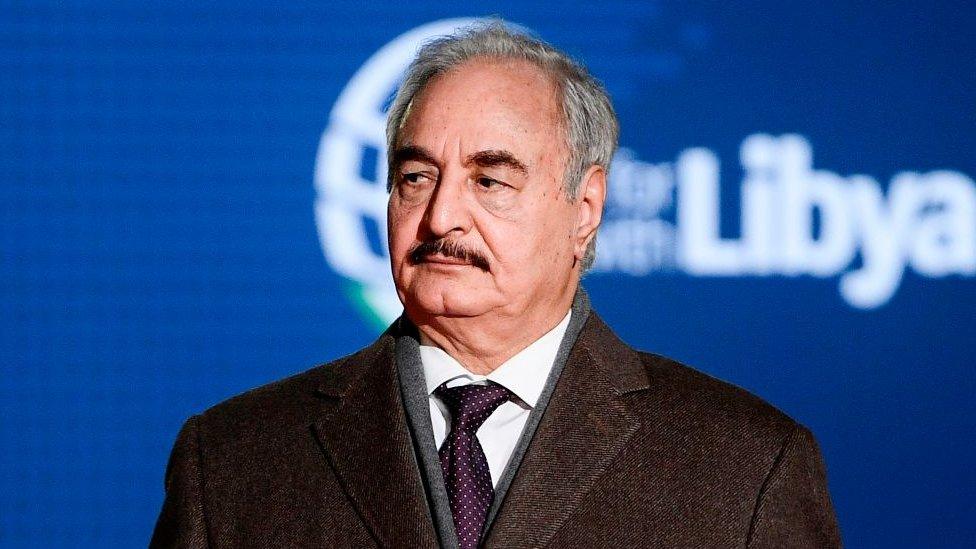
- Published23 January 2020
